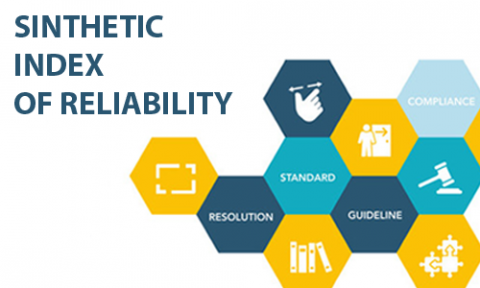Avviso
Dal 1° gennaio 2024 diventa operativa l'incorporazione di SOSE in Sogei, come previsto dalla legge n.112 del 2023 che ha disposto la fusione della società.
A tal fine tutte le comunicazioni Sose si trovano sul sito Sogei www.sogei.it.

The tax reform implemented in Italy in recent years has established a new system of relations between the Tax Administration and the taxpayers, promoting tax compliance, transparency and dialogue, also through the utilization of IT tools, which enable the taxpayers to do a real time evaluation of the economic and financial results of their activity in order to identify possible deviations and make the necessary adjustments before the due dates for tax declarations.
Italian Law n. 225 of December 1st 2016 has introduced the new Synthetic Index of Reliability.
The Synthetic Index of Reliability will promote compliance of the most virtuous taxpayers and will enable a better fight against those non-virtuous behaviors that distort the rules of competition and markets, while improving economic efficiency and tax system's neutrality in accordance with the recommendations of the main international Institutions (OECD, IMF).
The new system takes into account multiple elementary indicators, which regard not only the declared revenues, but also indicators of "reliability" and "anomaly" for a given economic activity. Most important, the new system allows the most reliable taxpayers to access a reward system, which implies several advantages such as shorter deadlines for controls, exclusion from some tax controls and faster procedures for VAT reimbursements.
The new approach intends to replace "repression" in favor of a rewarding logic based on cooperation between the Tax Administration and the taxpayers.
The definition of SIR is part of a wider strategy with the aim of strengthening the preventive collaboration between Tax Authorities and taxpayers, through dialogue, simplification of requirements and preventive verification of risk situations.
The application of SIR allows to replace the traditional concepts of tax audit and promotes tax compliance through the validation of information already available in the tax register or made available by the Revenue Agency.
Compliance is oriented towards improving the overall taxpayer's reliability profile and to stimulate, as a preventive tool, a correction of accounting data. It is also based on a deeper knowledge of the sector and of the operators who have a similar organizational model.
The information acquired during the year by the Revenue Agency will be made absolutely transparent to the taxpayers, who will be able to verify their reliability profile and possibly improve it.
The reward system will be a crucial factor to ensure tax compliance and a new, more open relationship between Tax Authorities and taxpayers.